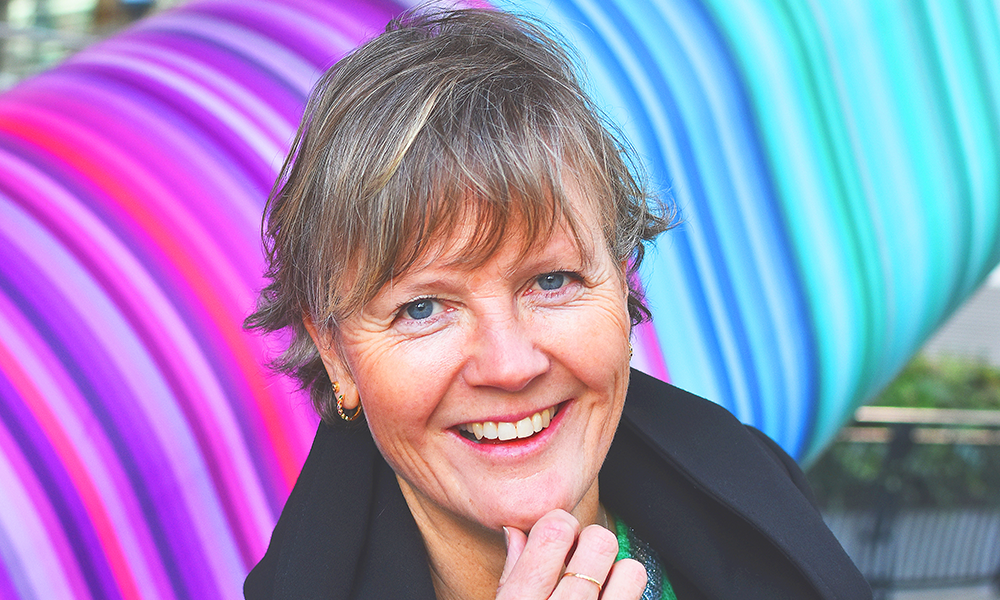Norwegian startup comes to Level39 as it looks to grow investors alongside the publishers it works with

Subscribe to our free Wharf Whispers newsletter here
The idea that the way things are at the moment is how they shall continue to be.
But the world rarely stands still, especially in the world of tech.
There’s a danger in this – in getting too comfortable with the prevailing winds, lest they all too rapidly change when one isn’t paying attention.
Innovation Norway has been running its Tech Executive Accelerator (TEA) programme at Canary Wharf’s Level39, more or less since the community launched in 2013.
Back then, people talked of Big Data, with a few early adopters whispering about the blockchain.
Challenger banks emerged, crypto wallets proliferated and there was much talk of machine learning. Now it’s generative AI.
During this period, small and medium-sized businesses (SMEs) have seen social media become the dominant marketing channel for their products and services.
But nothing in the digital sphere is guaranteed forever – the lustre of Facebook, Instagram, X, TikTok and even LinkedIn, has started to tarnish, with the inevitable consequences of light regulation and a limited appetite or capacity for in-house moderation.
So what of the future? Part of the answer may come from Norwegian startup Lyll – currently in Canary Wharf as part of the TEA’s latest cohort.
Launched in June, 2023, the company aims to offer SMEs a simple, self-service approach to advertising on digital news sites and is spending six months here as it targets growth.
While the column inches on these sites are often filled with discussions on the impact of and posts on social media, it’s perhaps easy to forget that much of the most well researched, potent and popular digital content is created by the news brands themselves, with millions of readers turning to them as trusted sources.
“I’ve been working in marketing for 25 years and online newspapers are my favourite marketing channel,” said Camilla Frydenbø, CEO of Lyll.
“I have a lot of love for them and they are important for brand building, which companies need if they are going to grow.
“But it hasn’t been very easy for SMEs to use this channel, because they typically have to talk to a salesperson.
“Most media businesses do not have self-service solutions, so many firms turn to social media because those platforms have made it easy to advertise and firms are welcome with any budget.
“Companies often perceive online news brands as expensive, so they don’t contact the salesperson as they feel like they need a big budget.
“What we’ve done is create a platform that makes it even easier to advertise on these sites than it is to use social media.
“We think businesses will use these channels if they know they can place adverts on these sites with a minimum budget of £50, which most companies can afford.
“The price of an ad view is similar to what they pay on social media – that makes it competitive.”
Lyll currently has more than 5,000 news sites on its platform, spread across nine European countries – a demonstration, perhaps of the publishers’ desire to uncover new streams of revenue in a tough climate.
“Our slogan is: ‘For your growth and a free press’, because we also think in this world where everyone is talking about sustainability, if we don’t have the fourth estate we will all have a problem,” said Camilla.
“We see in countries where there are fewer journalists and news sites being read, you don’t get a high level of debate or a nuanced picture of what’s going on.
“We hope that it will be part of a business’ sustainability plan – how they choose to spend their marketing budget and what they are funding with it.
“We have more than 200 companies in Norway which have signed up to Lyll with an account, although not all are active yet.
“We see it takes a while between when people create an account and when they start advertising, but the interest is definitely there.
“Companies know they need to reach a wider, mass market and when they don’t get the effect they used to from Facebook, it’s a perfect storm because they are willing to listen now.
“If they want to be on TikTok, for example, they have to make videos three times a week, at least, and small firms may not have the resources to produce the coolest thing on the platform.

“When it comes to LinkedIn, if you’re selling to consumers, then it’s not the right channel.
“Then you have women, primarily, using Facebook, and men on YouTube. That’s how the social media market is dividing right now.
“Going beyond this, bringing news sites into the marketing mix, will see firms continue their growth.”
That’s partly because the two streams serve different purposes.
Camilla said she would never encourage a company to abandon social, but spread marketing onto more than one channel.
She said: “It is important for businesses to always be better at brand building – creating something sustainable which gives them growth over time and makes them more profitable.
“A presence on national, regional or local news sites is how you do this.
“Firms need to be more patient with news sites.
“With social media, everything is so fast.
“Companies are always having to come up with new photos, videos, text – which is a little bit tiring.
“If you are always chasing sales, doing special offers or discounts, then you will never succeed.
“Businesses that put most of their marketing budget into brand building are the ones that win the market, but you don’t do that in three months or six months.
“You need a plan which goes over several years.
“We don’t say companies shouldn’t use social media, because we think they should. The best effect is when you use three to four channels with a single campaign.
“In Bergen, for example, we have a concert series. Until recently they were selling their tickets through Facebook.
“But since that was declining, they wanted to try Lyll.
“They took their small budget and divided it between the two newspapers in the city.
“They told us they had never sold out faster than when they divided the budget.
“Lyll can support what a company is doing on social media – their platforms are often more geared towards making ticket sales, but people also have to know there’s a concert on in the first place.”
Lyll’s idea will likely be welcomed by digital publishers, many of who have spent the years since the arrival of the internet attempting to thrash out viable business models.
Reach PLC, which has kept its sites such as mirror.co.uk and express.co.uk free to access, recently reported a 16% decline in digital revenues – albeit a collapse largely blamed on Facebook’s decision to send less traffic to news brands.
Camilla said engagement with companies like Lyll could help.
“It’s been very valuable to be in London at Level39 on the TEA programme,” she said.
“We said we were looking for investors and partnerships and we’ve had meetings with investors and big media companies.

“The latter see that they have a need for a self-service solution but they have one concern, whether it will have an impact on jobs.
“Sales people are definitely still needed to serve large advertisers – Lyll is not built for their needs – but we think they can activate sleeping customers.
“These companies have huge customer bases that we can appeal to.
“In the end, if they don’t do anything about this problem, they can’t complain about advertising going to social media because, if it’s difficult for companies to buy space on these platforms, they won’t do it.
“We make money by taking a small cut of the advertising spend – it’s programmatic advertising made easy.
“Another benefit is that while Google’s display network allows placement of ads on these sites, customers can’t choose where their ad appears.
“They might be placed on strange websites or bad websites, even. These things happen and brand safety is very important.
“If you want your advert to appear on the Financial Times’ site, for example, and you think you’ll get that from Google, you’ll probably find as little as 3% of your budget will place it there and the rest could see it placed somewhere else.
“With Lyll, you get to be in front of the audience you want – you decide where your money is spent.”
As for the future, Lyll is very much eyeing expansion to London following its spell in Canary Wharf.
“The networking with the TEA programme has been fantastic,” said Camilla. “I live in Bergen, which is the second largest city in Norway but is still very small.
“The investor pool is limited there in marketing tech.
“That’s why we wanted to come to London – here you have the best marketing people in Europe and the things we’ve been able to do, the little network we’ve been able to build – we’d have never been able to do this from Bergen.
“I think expanding to London would be a natural step for us.
“When we get more funding, the next thing is to hire a salesperson and they would have to be an English-speaking person who can talk to media companies around the globe and try and get them into collaboration with us.”
While the future of media online remains uncertain, the plummeting revenues at X following Elon Musk’s takeover of the platform and its descent into a frequently toxic space which companies are keen to avoid, could well be a cautionary tale.
With brands eager for a safe place to reach people, perhaps Lyll will help reignite a channel that’s been looking for a fresh approach for some time.
Follow this link to find out more about Lyll
You can find out more about Level39 here or Innovation Norway here
Read Wharf Life’s e-edition here
Subscribe to our free Wharf Whispers newsletter here
- Jon Massey is co-founder and editorial director of Wharf Life and writes about a wide range of subjects in Canary Wharf, Docklands and east London - contact via jon.massey@wharf-life.com



